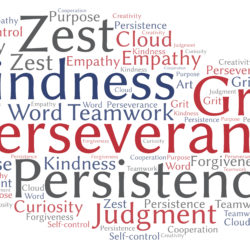The Supreme Court has just announced its long-anticipated ruling restricting the use of affirmative action in higher education admission. This decision has garnered significant attention and ignited passionate discussions across the nation. While many will have strong emotions and opinions surrounding this topic, I urge you all to be contemplative as we await the full implications, including insights from colleges who have been planning for this result. We can productively channel our energies and our work into encouraging colleges and universities to develop innovative new strategies to assure their campuses are diverse, reflective of the nation, and welcoming to all.
Affirmative action has long been a contentious issue, provoking a range of reactions from different individuals and communities. Some view it as a necessary tool to address historical inequalities and promote diversity, while others see it as an infringement upon merit-based principles. Regardless of your personal stance, we can all agree that as higher education institutions play a vital role in shaping the future of our society, it is crucial to ensure that their admissions processes are fair, inclusive, diverse and effective. These principles speak to IECA’s guiding principles.
With the Supreme Court’s ruling against affirmative action in admission, it presents an opportunity for colleges and universities to reevaluate their admission practices and develop new game plans that align with the changing legal landscape. IECA and all of our members can actively engage in meaningful conversations and encourage institutions to explore alternative approaches that promote diversity, equity, and excellence simultaneously.
The post-affirmative action era could witness the emergence of creative and dynamic solutions aimed at fostering inclusivity while maintaining high academic standards. Universities may consider implementing socio-economic factors, holistic evaluations, or tailored outreach programs to ensure equal opportunities for all students, regardless of their background or ethnicity. By urging institutions to proactively embrace change, we can help shape a future in which diversity and merit coexist harmoniously.
It is important to remember that progress often emerges from challenges and adversity. Instead of allowing anger or resentment to consume us, let us channel our energies into supporting our colleges and universities as they navigate the evolving landscape. Engaging in constructive dialogue, advocating for transparency, and demanding accountability will be vital as we collectively work towards creating a higher education system that is fair, inclusive, and accessible to all.
In the coming weeks and months, IECA will explore avenues for such dialogue and innovation at conferences, in webinars, in Insights, and beyond. IECA’s Government Relations Committee has established a task force to study the Supreme Court’s action and colleges’ responses. Together as leading voices representing our clients and their families, we can pave the way for a brighter and more inclusive future in higher education.
Together, let’s champion progress, embrace diversity in all its forms, and promote constructive dialogue.






